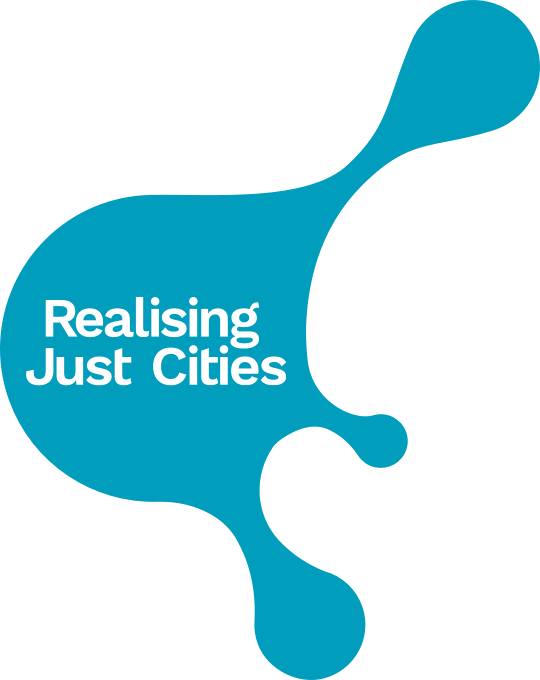On changing the world: learning and reflections from Gothenburg visit
For post five in our Trans-local Learning mini-series, Fiona Bottrill, Justice and Engagement Programme Manager in West Midlands Combined Authority, reflects on her experience visiting Gothenburg Region. Fiona writes:
Learning and reflections from Gothenburg visit
I was approached in February about the opportunity to join the Jam and Justice delegation to Gothenburg. I had not been involved in this research programme and was intrigued by the title ‘’Jam and Justice”. I was also interested to find out more about governance and engagement both in another European country and from the Greater Manchester Combined Authority who were also involved in the visit.
At this point I had been in post at the West Midlands Combined Authority for 6 months as Programme Manager for Justice and Engagement. Part of this role involves developing the engagement that was started with the Mental Health Commission’s Citizens Jury established in 2016. Having the chance to learn both from academic research and practice in another UK region and European country was a fantastic opportunity.
I hoped the visit would help me develop answers to the question,
“How do I create meaningful engagement between regional strategy and citizens / service users within a democratic context?”
The Jam and Justice Everyday Politics project and Tikitut Community Tourism showed how local people and communities can and do want to engage with the strategic issues that organisations, politicians and systems are struggling to address. I was particularly inspired by the work of Sarah Whitehead and her journey to establish Community Pride CIC.
What also resonated with me was a presentation on peri-urbanisation at Gothenburg City Hall. One presenter explained a Swedish term which translated into ‘mindshift’ in English. In the context of community engagement he said,
“We have to change our world view in order to change the world”.
Engagement in a Democratic Context
My background is in local government scrutiny, so I was fascinated by similarities and differences between the governance and accountability arrangements in the British and Swedish local / regional / municipal system. The longer-term stability and constant negotiation resulting from the Swedish PR electoral system at a national, municipal and city level seemed to mean that there was not such a clear division between political and officer roles. This is perhaps one reason why it was described to us that citizens in Sweden were formally involved at a later stage in the policy development process. However, this may be a rather simplistic analysis: I also came to the conclusion based on the presentations from Swedish colleagues that, while their co-production processes may be different to those developed as part of the Jam and Justice programme, they underestimated the complexity and depth of the engagement within their work. I have not resolved these two conflicting ideas yet!
The photo below shows the notes I made during the meeting at the Gothenburg Region offices. As a visual person this was my way of capturing the concepts being discussed.
I have tried to illustrate this more clearly in the diagrams below.
On returning to the WMCA this has helped me think through what different processes facilitate the communication / debate / involvement between these groups. Adjusting any one side of this triangle automatically has an impact on the ‘distance’ between the other two groups so engagement must be seen as a dynamic system.
This second diagram has helped me to think about the question “What are the precursors to effective engagement?” This is not a complete model – but work in progress to help me get to a point where I have a firm foundation to take forward the engagement work started by the WMCA Mental Health Commission in 2016.
Co-producing Engagement within a system without statutory powers
Since the Gothenburg visit, I have reflected on the learning above and also used the models shared by Beth Perry which help to clarify how to define the purpose and scope for co-production. Through discussions with the Citizens Jury Members, we are in the process of co-producing an engagement approach across the range of Thrive Programmes. This is an interesting space to occupy: The WMCA does not have statutory powers in relation to the delivery of these programmes but relies on the contractual arrangements with providers or the relational and system levers. It is therefore important to manage the expectations of citizens and service users who engage with us.
This is still work in progress, but the process mapped below describes my current thoughts on engagement with citizens and service users to effect change within the delivery and evaluation of the WMCA Thrive programmes.*
Fiona Bottrill,
WMCA, Programme Manager, Justice and Engagement
P.S. The visit has also enabled me to make contact with colleagues at the GMCA who work in the criminal justice space. This will be interesting to explore further given the different models across the two regions for Mayoral and Police & Crime Commissioner powers.
About Trans-Local Learning
To exemplify co-productive design principles means challenging the idea of an ‘end-user’ who receives a final report. It means rethinking what impact looks like and how it can be achieved. Our commitment is to engage decision-makers in a collaborative learning journey through informal spaces for exchange and international networking.
Trans-local learning is an important element in opening up spaces for learning and dissemination often reserved for academics to urban decision-makers. Trans-localism is more than just cities learning from each other across national boundaries. It points to the need for meaningful interactions between networked individuals and groups of similarly thinking people beyond the local. What is at stake is a sense of belonging through shared perspectives and concerns that transcend local boundaries.
More from the Trans-Local Learning series:
[4] Anne Lythgoe advocates more co-production following a trip to Gothenburg.
[3] Alice Toomer-McAlpine explores digital democracy with Barcelona's Decidim.
[2] Jacob Botham and David Rogerson reflect on the International Observatory for Participatory Democracy's 2018 conference.
[1] David Rogerson and Nick Fairclough draw some conclusions from Mistra Urban Futures annual conference.
* What are the WMCA Thrive programmes?
Focused on mental health and wellbeing, the WMCA's Thrive programmes include Thrive at Work and Thrive into Work. The This is Me programme works with employers to change work-place culture, with a particular focus on reducing stigma. The WMCA's annual Thrive awards recognise individual and organisational contributions to Mental Health in the region. Full action plans can be downloaded from the WMCA Mental Health Commission web pages.




